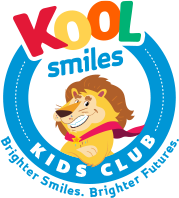
Are There Dentists that Take Medicaid? Find One at a Kool Smiles Partner Dentist
Seeking a great dentist who accepts Medicaid? Only 39% of U.S. dentists take Medicaid or the Children’s Health Insurance Program (CHIP). But you’re in luck! Kool Smiles Kids Club has a vast network of partner dentists across the country who welcome patients with Medicaid, TRICARE, CHIP, and other types of insurance.
If you’re not covered by Medicaid, but you think you might be eligible, visit https://www.medicaid.gov/. To learn more about Medicaid for dental care, or to discuss your child’s needs, schedule a consultation with your nearest Kool Smiles Kids Club partner dentist.
How Does Medicaid Work?
More than 66 million Americans rely on Medicaid – a joint federal and state program that provides insurance coverage for limited-income families (and in some cases, others, like children in foster care).
Medicaid coverage isn’t necessarily straightforward. Coverage can vary between states, and it can be difficult to figure out whether or not your family meets the limited-income requirements. Many people start the Medicaid application process only to find out that they make too much money to qualify for Medicaid and too little to pay for other types of insurance. Other programs, like CHIP, can help bridge the gap by providing low-cost coverage for children and families who aren’t eligible for Medicaid but can’t afford costly insurance premiums. Like Medicaid, CHIP is a general healthcare insurance policy. It extends to dental care when the care is deemed medically necessary by the dental care provider.
FAQs: Using Medicaid at the Dentist
What will Medicaid pay for?
Medicaid covers dental healthcare for children under 18. Eligible services vary from state to state, but some regulations are set federally. According to the Medicaid website, at minimum, children in all states are covered for maintenance of dental health (like checkups and cleanings), restoration of teeth (like fillings), and relief of pain and infections.
If your child’s dental services aren’t medically necessary, expect to pay at least part of the cost out-of-pocket. A Kool Smiles Kids Club partner dentist can work with you to find a payment option that suits your needs. Treatments that may not be considered medically necessary include certain types of crowns, dentures, or braces, without prior authorization. If you’re seeking any of these procedures for your child, contact your state’s Medicaid office ahead of time.
A note on the term “medically necessary” – there’s no complete list detailing which procedures are medically necessary in which situations. Every situation is unique, but in general, medical necessity is defined as “reasonable and necessary for the treatment of illness, injury, disease, disability, or developmental condition.”
Dentists who accept Medicaid are required to provide Early and Periodic Screening, Diagnostic, and Treatment (EPSDT) services. (More on that below.)
What does EPSDT mean when it comes to my kids’ teeth?
EPSDT stands for Early and Periodic Screening, Diagnostic, and Treatment services. The goal of EPSDT is to catch issues early through periodic screening, perform appropriate diagnostic tests to assess the issues, and carry out timely treatment. The basis for EPSDT is that issues are typically easier (and less costly) to treat when they’re caught early, and outcomes are often better.
Untreated dental problems are linked to:
- Poor performance and excessive absences at school.
- Psychological issues.
- Self-esteem problems.
- Preventable trips to the emergency room.
- Increased costs (for more expensive treatments)
There’s also evidence that oral infections may have some sort of relationship with other health problems, including heart issues and diabetes.
It’s worth noting that the P, or periodicity, in EPSDT can vary by state. Check with a representative from your state’s Medicaid office to find out how many visits they’ll cover per period, and which services are included.
What treatments are covered by Medicaid?
Depending on where you live, your child may be eligible for the following care under Medicaid:
- Screening procedures to support dental health, including dental exams, screenings, tooth decay risk assessments, and x-rays.
- General services to alleviate pain, halt infection, or restore dental health.
- Preventative care, such as cleanings, sealants, and in some cases, fluoride treatments or space maintainers.
- Therapeutic services, including fillings, crowns, root canals, and possibly microbial treatments to prevent the spread of tooth decay.
- Other services that fall into the “medically necessary” category in combination with any of the treatments outlined above. (Like anesthesia during a filling, for example.)
Did you know sealants on molar teeth can reduce the risk of cavities by 80%, according to the American Dental Association? Prevention works!
Is there a limit on what Medicaid covers for my kids?
Medicaid does impose limits on the types and number of procedures covered per period. Your child may be covered for one cleaning per year, for example. It’s important to note that some treatments that are covered in some situations may not be covered if they’re not deemed medically necessary. A team member at your nearest Kool Smiles partner clinic can let you know what’s typically covered, but we always recommend checking with your state’s Medicaid office well ahead of any planned procedures.
Kool Smiles Kids Club has partner dentists throughout the U.S. who accept Medicaid. Our partners also welcome members of the military and reservists who wish to pay for their services with TRICARE.
How can I get somebody to explain my Medicaid benefits to me?
If you feel like you’re getting the runaround from your state’s Medicaid office, reach out to a team member at your nearest Kool Smiles partner clinic. Our partners deal with Medicaid every day and understand how it works. When you schedule a consultation, a team member will gladly explain your coverage and let you know what services are covered under your plan.
How long should I wait to schedule a dentist appointment?
You shouldn’t! Preventative care can save you time and money, and it can save your child from the unnecessary discomfort that often accompanies an oral health problem. In general, it’s much less expensive to prevent a problem than it is to treat it.
See a Dentist Who Takes Medicaid Today
With an extensive network of partner dentists who accept Medicaid, Kool Smiles Kids Club makes it easy to find one near you. There’s no need to call ahead to confirm – our partners welcome patients with Medicaid, and they don’t limit the number of Medicaid patients they’ll see per day.
Busy schedule? Not a problem! Kool Smiles has partner dentists who are open on weekends to accommodate busy families.
———-
Sources:
ADA: https://protect-us.mimecast.com/s/iuS8CpYqW0SK5Ykiyo_OX (Page is dead)
TRICARE: https://tricare.mil/Dental.aspx
Medicaid: https://www.medicaid.gov/
https://www.medicaid.gov/medicaid/section-1115-demo/demonstration-and-waiver-list/index.html
https://www.medicaid.gov/chip/state-program-information/index.html
https://www.medicaid.gov/medicaid/eligibility/index.html
https://www.medicaid.gov/state-overviews/index.html
National Academy for State Healthcare Policy: https://www.nashp.org/medical-necessity/
American Speech-Language-Hearing Association: https://www.asha.org/Practice/reimbursement/medicaid/Medicaid-Toolkit-Medical-Necessity/
National Institute of Dental and Craniofacial Research: https://www.nidcr.nih.gov/research/data-statistics/surgeon-general#major-findings
The National Center for Biotechnology Information: https://www.ncbi.nlm.nih.gov/pmc/articles/PMC3482021/
https://www.insurekidsnow.gov/
https://www.insurekidsnow.gov/coverage/index.html
American Dental Association: https://www.ada.org/en/member-center/oral-health-topics/dental-sealants
https://www.ada.org/~/media/ADA/Science%20and%20Research/HPI/Files/HPIBrief_0316_4.pdf
University of Illinois: https://dentistry.uic.edu/news-stories/the-value-of-preventive-oral-health-care/
